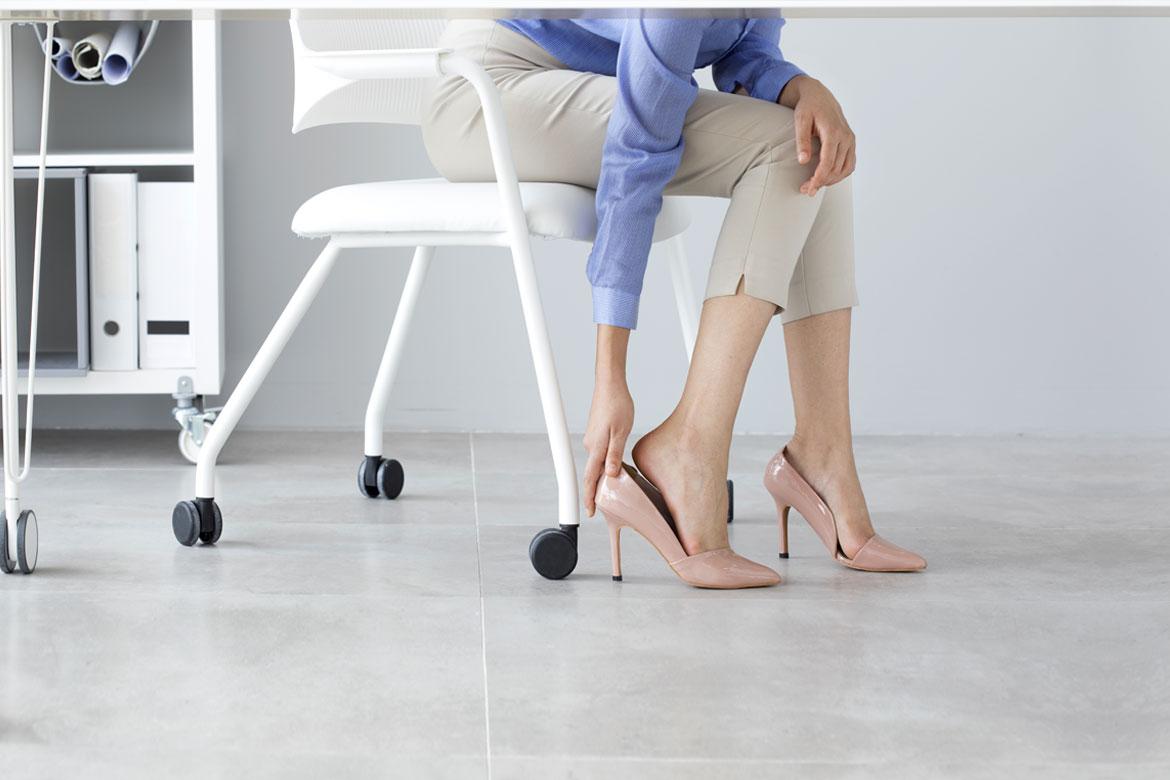
Plantar Fasciitis (Foot Pain)
How is plantar fasciitis (foot pain) diagnosed?
To confirm if you have plantar fasciitis, your doctor will examine your feet and ask about your symptoms. Tests may be advised, such as an X-ray or MRI so your doctor can be certain that the pain is not caused by a fracture or arthritis.
If you experience persistent pain with little or no relief from rest, it’s best to speak to your doctor.
How is plantar fasciitis (foot pain) treated?
There are several home remedies and non-surgical options that can help to relieve the pain. These include:
- Resting
- Stopping any activity that makes the pain worse, such as running or jumping
- Icing your heel
- Using corrective aids such as shoes with extra support or orthotic inserts to provide more cushioning and/or arch support
- Wearing night splints to stretch your calf and foot while sleeping
- Taking medication to relieve pain and inflammation, under your doctor’s supervision
- Physical therapy is also helpful to stretch the plantar fascia and Achilles tendon, and strengthen leg muscles to make your ankle and heel more stable.
These interventions usually take up to 10 months for any improvement. If they do not offer sufficient relief, your doctor may recommend cortisone injections to ease the inflammation.
Surgery is also an option if other forms of treatment are unsuccessful, or if the pain is severe and persistent for more than 6 months. Your doctor may recommend one of the following:
- Plantar fascia release. This surgery involves the partial detachment of the plantar fascia from the heel bone. This reduces tension and relieves pain, but it also weakens the arch of the foot and may limit its full function.
- Gastrocnemius recession. This surgery is recommended if you have difficulty flexing your feet even after stretching. This procedure lengthens the calf muscle, increases ankle motion, and relieves stress on the plantar fascia.
As any form of surgery comes with risks, it is advisable to attempt non-surgical options first. Consult an orthopaedic surgeon to determine the treatment method most suitable for you.
This page has been reviewed by our medical content reviewers.
Need help?
For enquiries, please call
+65 6250 0000 (Orchard) or +65 6898 6898 (Novena)
For appointment bookings, please WhatsApp
+65 8111 7777 (Orchard) or +65 8111 5777 (Novena)
 Brain & Spine Care
Brain & Spine Care



